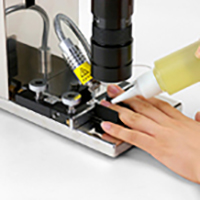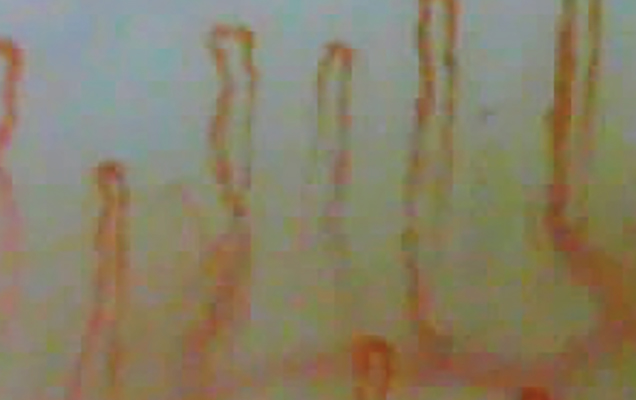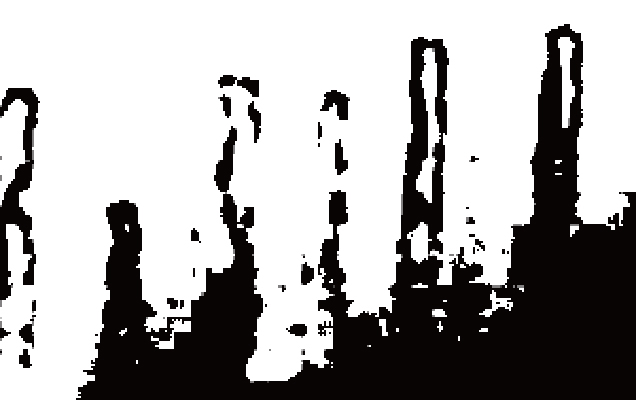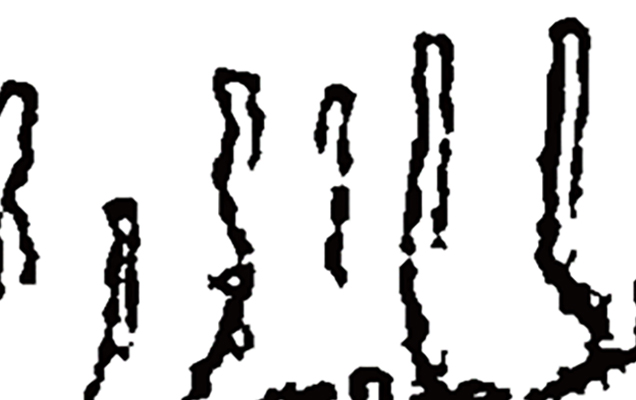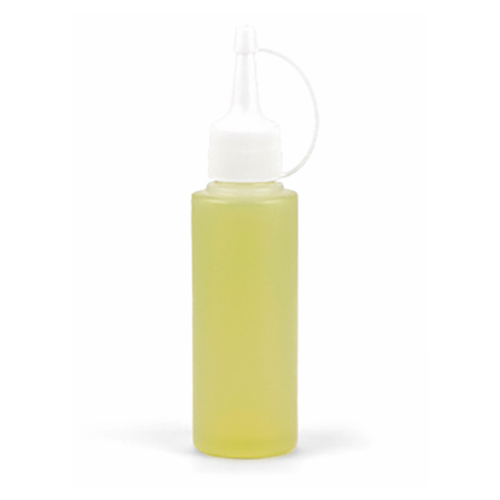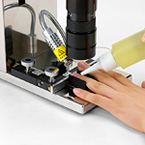About Kekkan-Bijin (Capillary microscope)
What is Kekkan Bijin?※ Not a medical device
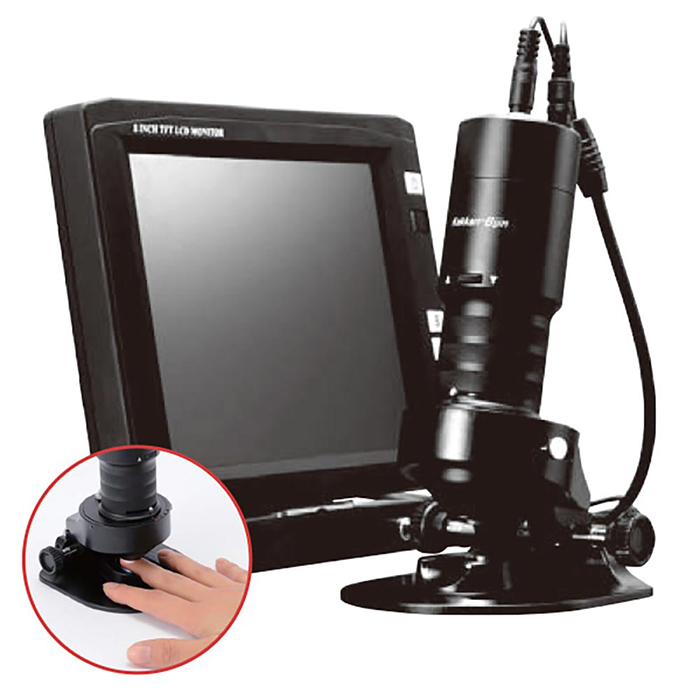 The capillary scope Kekkan Bijin is a type of equipment that can easily observe capillary blood flow without drawing blood.
The capillary scope Kekkan Bijin is a type of equipment that can easily observe capillary blood flow without drawing blood.
Three main points of observation:
- Whether or not capillaries have twists
- Whether or not the thickness of capillaries is appropriate
- Whether or not there are impurities in the capillaries
Checking the status of your health by viewing minute changes occurring within your own body can provide you with an opportunity to rethink your lifestyle. In addition to being used mainly as a consoling tool at the entrance of pharmacies and other locations, AT’s products are also being used, for example, in the research departments of private companies to evaluate the effectiveness of a product.
Closely observing the health of people around the world through the power of “capillary technology.
AT CO., LTD. is the world’s first venture company providing “capillary technology” in the field health care and pre-symptomatic diseases. We offer comprehensive capillary analysis systems that can perform observation, analysis, evaluation, and save capillary images. Based on know-how gained from capillary observations by tens of thousands of people as well as the extensive capillary data acquired through these observations, we are conducting research day and night together with leading researchers to clarify the relationship between capillaries and other health phenomena. Supported by this kind of new capillary analysis, we are pushing forward to establish a world where all people can easily confirm their health and prevent disease with “new-generation health and pre-symptomatic disease indicators.”
Can be used for highly magnified observations of body parts, including skin, hair, and gums.
Can observe capillary conditions, a feature that has been covered on television and in magazines and other media outlets.
Kekkan Bijin can examine the status of your health in a simple and easy manner.
 Because no special qualification is required to operate kekkanbijin, anyone can use it easily.
Because no special qualification is required to operate kekkanbijin, anyone can use it easily.
Recently, two conditions that continue to increase as prime examples of health hazards are blood circulation failure and low body temperature. Amid this, there is a significant need for people to be able to know whether their blood is silky or syrupy. However, many people do not know where to turn to find out such information.
With its relatively small size, low cost, and simple operation, Kekkan Bijin can easily meet customer needs. Customers particularly enjoy being able to conduct regular observations.
Kekkan Bijin is being used for a wide variety of reasons, including supplement sales and health equipment sales, as well as for a part of private companies’ welfare programs and household health management.
Analysis software CAS

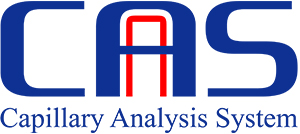
Created through collaborative research with Osaka University, this capillary analysis software is the world’s first software that can convert capillary images into numerical form in just three seconds.
-

Uses fingertips, so it is low cost and does not have a heavy burden on the body
AT’s capillary analysis uses fingertips, meaning it offers a non-invasive and real time analysis. In addition, with its highly specialized capillary analysis features, it is also low cost. These factors mean that AT’s capillary analysis can save you a significant amount of time, which also leads to reduced clinical costs.
-

Dual-screens allow for comparisons of time-dependent change
By visualizing internal body conditions on location and in real time, Kekkan Bijin can help encourage patients to change their lifestyles on their own initiative. Furthermore, as dual-screen comparisons allow you to confirm time-dependent changes, Kekkan Bijin can be used as a counseling tool for improving patients’ symptoms.
-
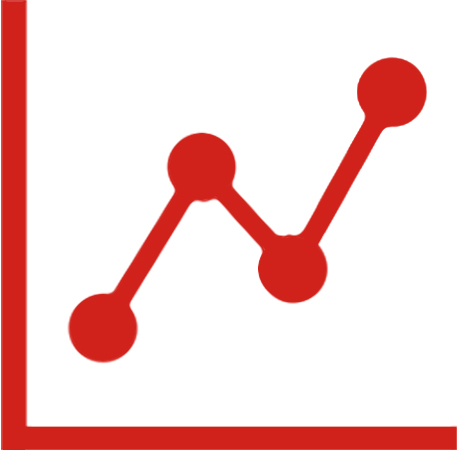
Equipped with world’s first capillary imaging feature that allows for automatic conversions into numerical form.
Through collaborative research with Osaka University, Kekkan Bijin has been successfully equipped with AT’s proprietary image processing algorithms. Numerical conversions can be performed in just three seconds, meaning you can use the acquired image and numerical figures to effectively visualize and verify analysis results (manual measurements are also possible).
Overview of capillary analysis and observation using CAS
Flow of observation
1. Input and management of patient information
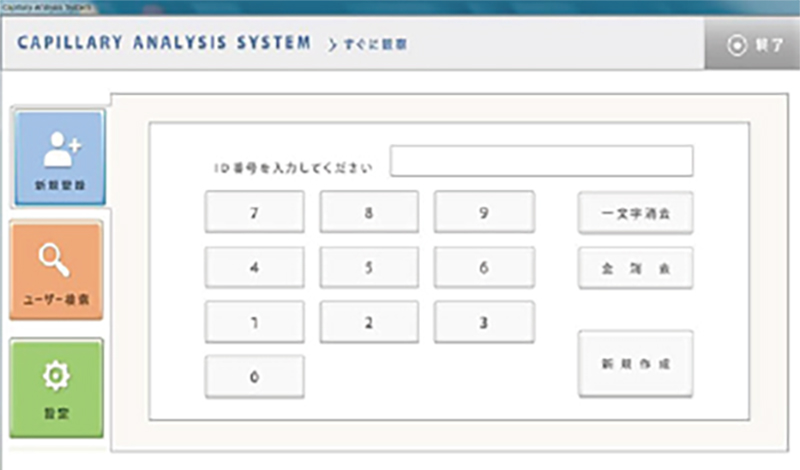
Images and video can be taken soon after entering the ID information. Detailed patient information (name, age, sex, opinions, comments, etc.) can be entered afterwards, and can be confirmed during subsequent measurements.
2. Feature for capturing still images
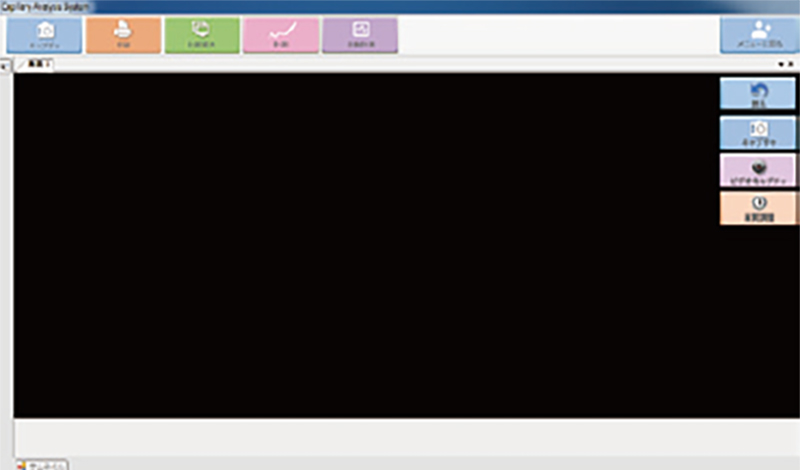
Still images can be taken simply by single clicking the IMAGE button on the upper right of the screen. Clicking the IMAGE button multiple times allows for images to be taken continuously, and video can be taken by holding the IMAGE button down (doing this operation with CAS requires a capillary scope [sold separately]). Through a simple operation, you can open past information and make comparisons.
3. Automatic measurement feature
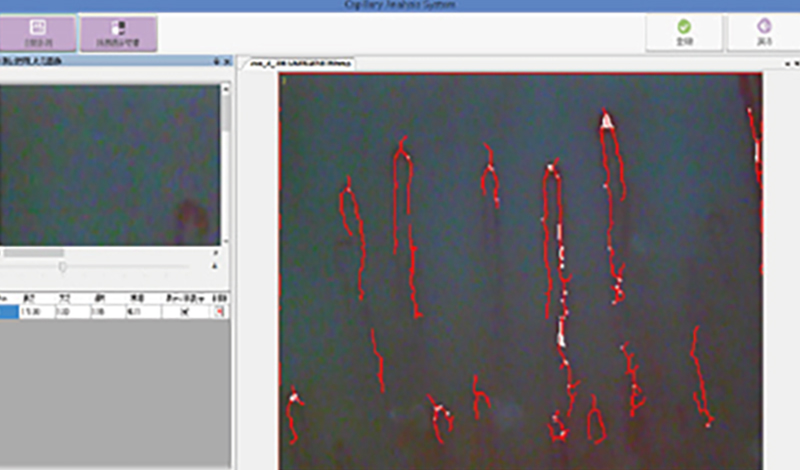
A single image can be converted to numerical form (displayed in pixel units) in just under four seconds. By using the measured numerical data, you can make objective comparisons with other images.
4. Real time, dual-screen comparisons
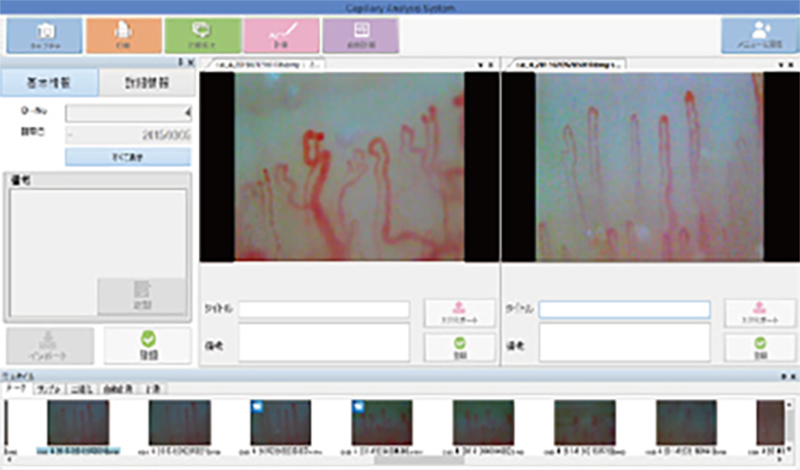
Dual-screens allow you to make comparisons of time-dependent change. Comparing previous capillary images makes it easy to capture an image of the identical location.
Overview of analysis
Manual measurement
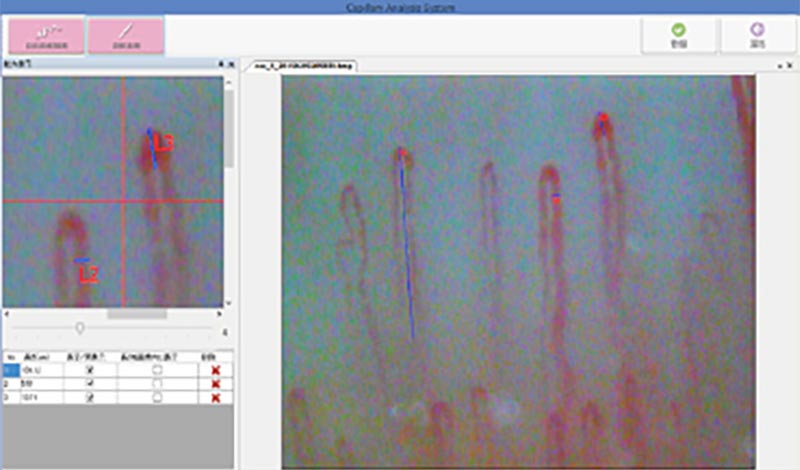
The distance between two points can be measured. Measurements of length, thickness, loop edges, etc. can also be carried out when necessary.
CSV output of measurement results
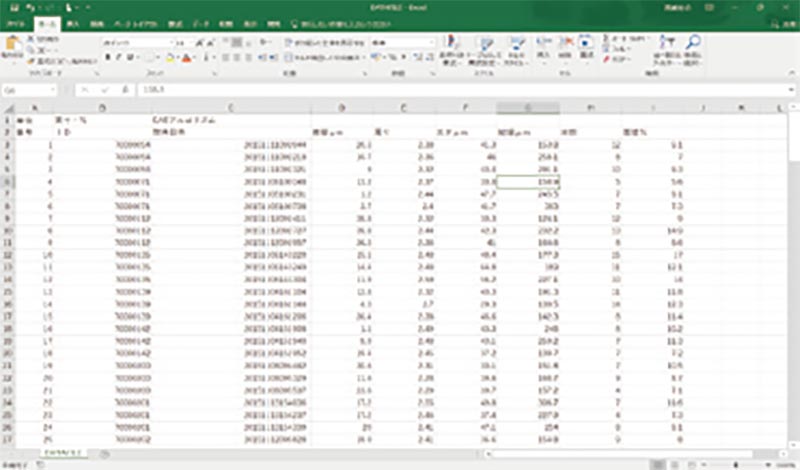
The output of measurement results by ID is possible. The output design is in CSV format. Also, we operate an analysis outsourcing service where users can send the capillary images they took to receive an analysis.
Real time conversion into numerical form
This software was developed through collaborative research with Osaka University’s Graduate School of Medicine, Faculty of Medicine. The software uses special image processing algorithms that match characteristics of capillary images. Conventional binarization methods left unnecessary black spots on the image. However, by using this new method (reaction-diffusion equations), for which we have submitted a patent, we have successfully extracted an extremely clear image of capillary shape.
 The capillary scope Kekkan Bijin is a type of equipment that can easily observe capillary blood flow without drawing blood.
The capillary scope Kekkan Bijin is a type of equipment that can easily observe capillary blood flow without drawing blood. Because no special qualification is required to operate kekkanbijin, anyone can use it easily.
Because no special qualification is required to operate kekkanbijin, anyone can use it easily.


